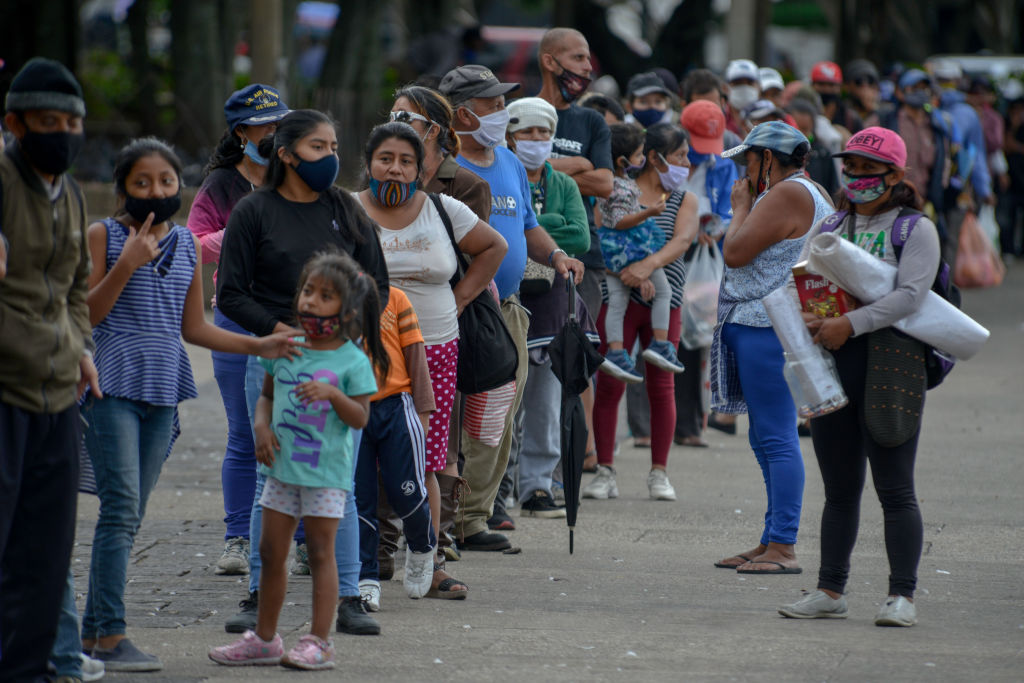
Disruption to food production and supplies due to COVID-19 could cause more deaths from starvation than the disease itself, according to an Oxfam report published Thursday.
The report found that 121 million more people could be “pushed to the brink of starvation this year” as a result of disruption to food production and supplies, diminishing aid as well as mass unemployment. The report estimates that COVID-19 related hunger could cause 12,000 deaths per day: the peak global mortality rate for COVID-19 in April was 10,000 deaths per day.
“COVID-19 is the last straw for millions of people already struggling with the impacts of conflict, climate change, inequality and a broken food system that has impoverished millions of food producers and workers,” said Oxfam’s Interim Executive Director Chema Vera in a press release.
Oxfam says Yemen, Democratic Republic of Congo (DRC), Afghanistan, Venezuela, the West African Sahel, Ethiopia, Sudan, South Sudan, Syria, and Haiti are “extreme hunger hotspots” that are likely to be severely affected by the pandemic.
Already, many people are facing starvation as a result of lockdown measures. Yemen, for instance, which relies heavily on food imports, has seen a spike in food prices as a result of supply route and border closures. In India, travel restrictions inhibited migrant labours from working on farms, leaving many crops to rot.
Around the world, however, women and women-headed households are more likely to suffer from COVID-19 linked hunger because of women’s lower economic status as well as the systemic discrimination they face. Women, who also make up a significant portion of informal workers, are more likely to have been severely affected by lockdown measures.
“COVID-19 is causing us a lot of harm,” Kadidia Diallo, a female milk producer in Burkina Faso, told Oxfam. “Giving my children something to eat in the morning has become difficult. We are totally dependent on the sale of milk, and with the closure of the market we can’t sell the milk anymore. If we don’t sell milk, we don’t eat.”
Although the COVID-19 related causes of starvation—such as lockdown measures and travel restrictions—are necessary to prevent the spread of the virus, the report notes that there are enough funds globally to address starvation. Eight out of ten of the biggest food and drink companies paid more than $18 billion to shareholders since the beginning of this year, an amount that is “ten times more than the UN says is needed to stop people going hungry,” according to the report.
“Governments must also build fairer, more robust, and more sustainable food systems, that put the interests of food producers and workers before the profits of big food and agribusiness,” said Vera.
More Must-Reads from TIME
- Why Trump’s Message Worked on Latino Men
- What Trump’s Win Could Mean for Housing
- The 100 Must-Read Books of 2024
- Sleep Doctors Share the 1 Tip That’s Changed Their Lives
- Column: Let’s Bring Back Romance
- What It’s Like to Have Long COVID As a Kid
- FX’s Say Nothing Is the Must-Watch Political Thriller of 2024
- Merle Bombardieri Is Helping People Make the Baby Decision
Contact us at letters@time.com